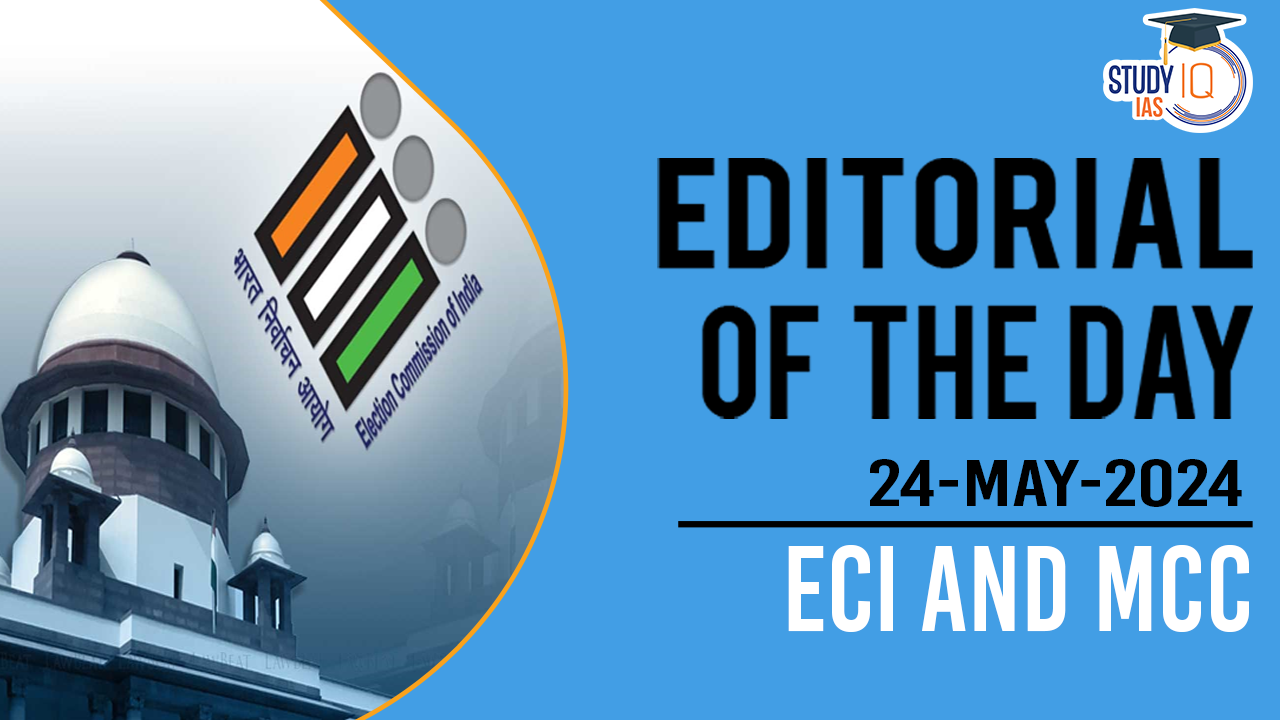Table of Contents
Context: There have been complexities and challenges associated with ensuring fair and truthful conduct during elections in India.
Introduction
- National Motto: “Satyameva Jayate” (“Truth alone triumphs”) from the Mundaka Upanishad was adopted as India’s national motto on January 26, 1950.
- Election Commission of India (ECI):
- The ECI was established a day before India became a Republic.
- Its primary role is to facilitate democratic elections, ensuring a level playing field for candidates and political parties by preventing undue influence through money, muscle power, or falsehood.
Role of the Model Code of Conduct (MCC)
- Implementation and Expectations:
- The MCC is designed to ensure fair conduct during elections by instilling a sense of self-restraint among candidates.
- Adopted with the expectation that candidates will project exemplary behaviour, as outlined in the Manual on MCC published during the General Elections in March 2019.
| Model vs. Moral Code |
|
Contributions and Challenges of MCC
- The MCC is designed to ensure fair conduct during elections by preventing undue influence through money, muscle power, or falsehood.
- Despite its implementation, the MCC faces challenges in instilling genuine self-restraint among political candidates, who often face dilemmas between lying to others and themselves.
| Mahabharata Story Reference |
|
- Provisions Against Hate Speech: The MCC and legal frameworks (Indian Penal Code Section 123(3&3A) and Section 125 of the Representation of the People Act, 1951) prohibit appeals to caste or communal feelings for votes.
- Such appeals must explicitly relate to voting to be considered corrupt practices or electoral offences.
- Enforcement Challenges: Clever phrasing allows politicians to circumvent these laws, complicating enforcement.
Conclusion: Rethinking the MCC
- The Mahabharata story underscores the need to rethink and reboot the MCC and our conscience.
- Emphasised the importance of maintaining moral integrity in democratic processes to avoid long-term damage beyond elections.


 India’s Next Manufacturing Leap: From ...
India’s Next Manufacturing Leap: From ...
 Stray Dogs in India: Why the Issue Is Cr...
Stray Dogs in India: Why the Issue Is Cr...
 Grammy Awards 2026: Full Winners List, H...
Grammy Awards 2026: Full Winners List, H...

























